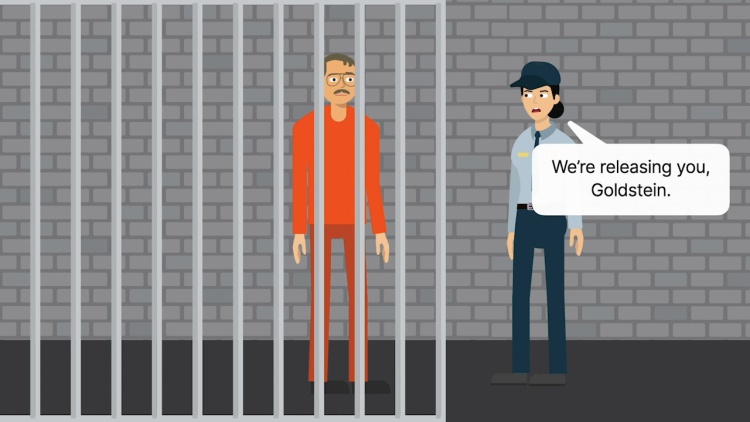Van De Kamp v. Goldstein
United States Supreme Court
555 U.S. 335 (2009)

- Written by Josh Lee, JD
Facts
Thomas Goldstein (plaintiff) was convicted of murder in 1980, based in part on the testimony of a jailhouse informant. In 1998, Goldstein filed a habeas corpus action alleging that the informant’s testimony was false, the informant had previously received favorable treatment for testifying for the prosecution, and, the Los Angeles County District Attorney’s Office should have disclosed this previous favorable treatment. Goldstein alleged that the failure to provide this information, which could have been used to impeach the informant, lead to his erroneous conviction. The trial court agreed with Goldstein and ordered the state to either provide a new trial or to release Goldstein. The court of appeals affirmed, and the state released Goldstein. Goldstein then sued the Los Angeles County district attorney and the chief deputy district attorney (defendants) under § 1983, alleging that the failure to communicate the informant’s previous testimony-related rewards violated his constitutional rights. Goldstein also alleged that this failure resulted from a lack of adequate training and supervision of prosecutors and from a failure to institute an information system about informants. The prosecutors moved to dismiss the lawsuit, claiming absolute immunity. The trial court denied the motion to dismiss, ruling that the allegations complained of administrative, not prosecutorial conduct. The prosecutors appealed to the United States Court of Appeals for the Ninth Circuit, which affirmed. The prosecutors then petitioned the United States Supreme Court for review.
Rule of Law
Issue
Holding and Reasoning (Breyer, J.)
What to do next…
Here's why 911,000 law students have relied on our case briefs:
- Written by law professors and practitioners, not other law students. 47,100 briefs, keyed to 997 casebooks. Top-notch customer support.
- The right amount of information, includes the facts, issues, rule of law, holding and reasoning, and any concurrences and dissents.
- Access in your classes, works on your mobile and tablet. Massive library of related video lessons and high quality multiple-choice questions.
- Easy to use, uniform format for every case brief. Written in plain English, not in legalese. Our briefs summarize and simplify; they don’t just repeat the court’s language.





